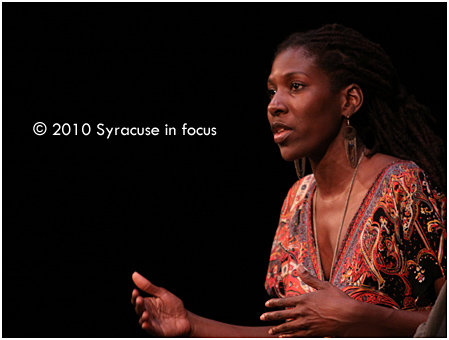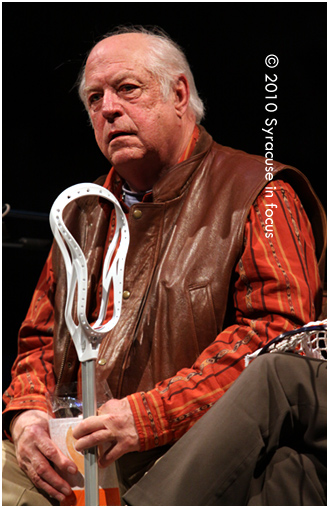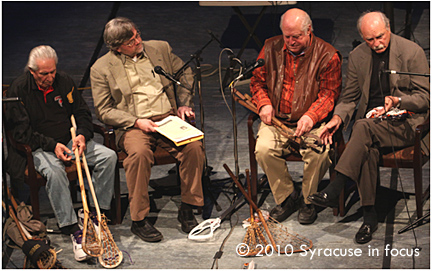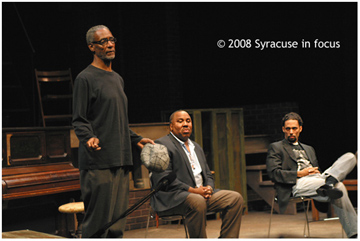When it comes to an accurate portrait of African American life, site August Wilson’s cycle of plays examining the 20th century is a gift that keeps on giving.
This month Syracuse Stage produced Wilson’s Radio Golf.
Radio, set in 1990s Pittsburgh, revolves around Harmond Wilks (played by Richard Brooks) as he attempts to redevelop a blighted Pittsburgh neighborhood and parlay that venture into a run for mayor. At the climax of the play the audience is left with a sense that change is coming, but not without a struggle, or a fight.
A “Talk Back” forum was held by the stage and the actors talked about the genius of Wilson and how his work always fosters further examination.
Leland Gantt (Radio’s Sterling) said that the actors were on a journey to excavate the truth in Wilson’s work (the last he produced before he passed in 2005).
During a celebration of August Wilson’s work at Syracuse University in 2006, Dramaturg Kyle Bass, said it best: “Wilson gave us back to us.”
Thomas Jefferson Byrd (Radio’s Elder Joseph Barlow), who appeared in Wilson’s Ma Rainey’s Black Bottom at Syracuse Stage in 2009, described interpreting Wilson’s work on stage like eavesdropping on a conversation or peering thru a peephole at a family discussion. He said Wilson was able to avoid stereotypes by being true to the characters. “You know the truth when you hear it,” he said.



